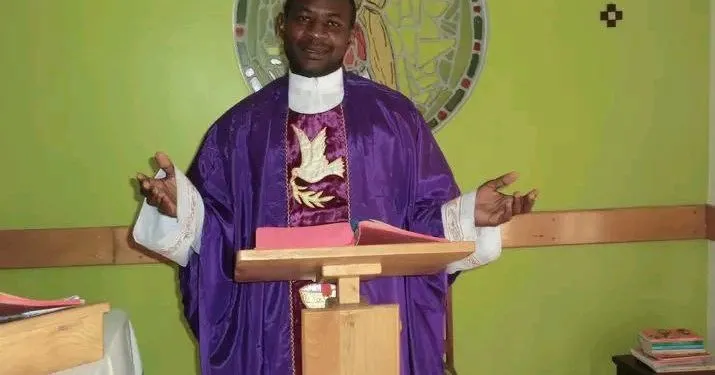The Catholic Regional Superior of Mill Hill Missionaries for Cameroon has said the crisis plaguing the English-speaking regions shows no signs of ending soon.
Rev. Fr. Akum Innocent Wefon was speaking recently in an exclusive interview on Radio Vatican.
From the prelate’s standpoint, things have not settled down in the two regions.
“The war is still on, insecurity is rampant,” said Reverend Father Akum Innocent, who believes the people of the two regions have learnt to live with the insecurity.
“At the beginning, people did not know what war is all about how to handle gunshots, bullets, those who had been shot, and so on,” he went on.
The Mill Hill Missionaries superior added that, “people have developed a thick skin to be able to cope and move on with their activities.”
The separatist conflict which started with corporate demands by Anglophone lawyers and teachers, has shown no signs of ending, as acts of violence keep surfacing.
“If you can count for yourself, it is eight years now and there are no signs that it is ending anytime soon,” he said.
With hundreds of thousands of people displaced, the crisis has negatively affected the local economy, plunging the common man into severe hardship.
The situation is further worsened by periodic lockdowns imposed by armed separatists.
“Sometimes lockdowns are declared for one month. This is a huge loss for traders dealing in perishable goods,” he stated.
“There are a lot of checkpoints on the road mounted by separatists and the military. Transportation of mostly farm products from one place to another is very expensive,, making it not profitable as much money is spent on transportation,” he observed, stating that, “economically the crisis has put the Anglophone zone on its knees.”
The armed conflict, still begging for solutions, has affected all aspects of human life.
People have lost their lives, he said, especially during lockdowns for lack of access to healthcare.
The church is also bearing the brunt of the unresolved conflict.
“On some Sundays, there is no means for people to even go to church. We keep praying for the best.
“As missionaries and men of God, what has not been killed is our enthusiasm. Also, the people’s enthusiasm to live, to succeed, to be happy, to make things move has not been stopped,” he added.
Sounding resilient, he recalled a tragedy that struck the church with the shooting to death of a priest in Kembong, in the South West.
“As I said earlier, we are very resilient people. We believe in the good news, and nothing will stop us from proclaiming it.”
He recalled that “I remember we have one of our parishes in Kembong where a priest was killed some years ago, and after a couple of months, a new priest appointed was shot four times though he did not die.”
The trouble in the two regions is rooted in the historical past, with a perception of marginalisation of the two English-speaking regions by the francophone majority.
Rev Akum Innocent said the problem cannot be fixed through violence but through dialogue.
“The problem is a very complex one. It cannot be fixed through bullets, or the government unless we have a goodwill government in place,” he told Vatican Radio.
“There is this strong ideology amongst Anglophones that they are being marginalised, and they need autonomy to do it their own way, not imposition.”
The stalemate in the Anglophone Crisis has been thanks to the government’s refusal to dialogue with the separatists for a peaceful resolution.
In January last year, the government turned down a Canadian offer to mediate a dialogue which could have seen the end of hostilities.
“It is high time the international community took responsibility. We are hoping that one day the UN, AU, and the rest will come in and say these brothers should sit and talk,” said Rev.. Akum Innocent.



